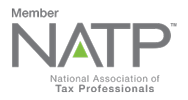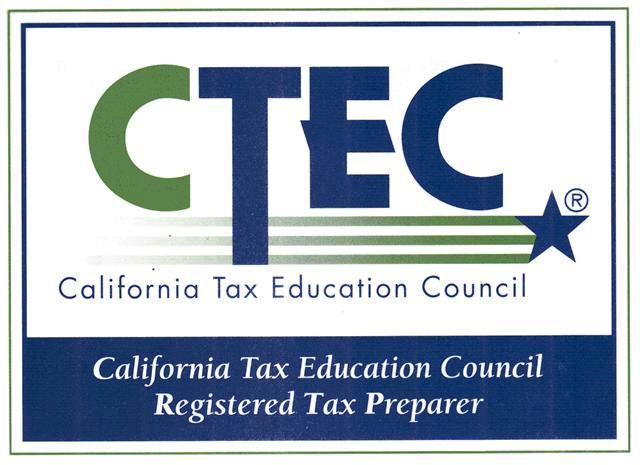
by Ambassador Tax Services, Inc. | Aug 8, 2022 | Tax Tips and News
This summer, the country has been hammered by extreme weather—from oppressive heat waves to torrential rains. In response to deadly flooding in Eastern Kentucky, the Internal Revenue Service announced tax relief for counties the Federal Emergency Management Agency declared disaster areas.

What is included in the Kentucky tax relief?
Deadlines for filing tax returns and making payments due on or after July 26, 2022, are pushed back to November 15, 2022, for declared disaster areas in Kentucky. Here are some of the deadlines affected by the tax relief:
- August 1 quarterly payroll and excise tax returns
- September 15 quarterly estimated income tax payments
- October 17 individual extensions
- October 31 quarterly payroll and excise tax returns
The IRS also notes they will abate “penalties on payroll and excise tax deposits due on or after July 26 and before August 10 … as long as the deposits are made by August 10, 2022.” Further, the agency says uninsured and unreimbursed losses from the flooding can be claimed on an individual or business return for either of the following years:
- The year the loss occurred (in this instance, the 2022 return normally filed next year)
- The return for the prior year (2021)
For more information about affected deadlines, visit “Disaster Assistance and Emergency Relief for Individuals and Businesses” on IRS.gov.
Who will receive this tax relief?
Taxpayers with a residence or business in declared disaster areas automatically receive this tax relief without taking any specific action. Currently, those counties include:
- Breathitt
- Clay
- Floyd
- Johnson
- Knott
- Leslie
- Letcher
- Magoffin
- Martin
- Owsley
- Perry
- Pike
- Wolfe
As FEMA continues to assess the situation in Kentucky, they may add counties to the list of tax-relief beneficiaries. We will update this page if additional areas are announced.
Source: IR-2022-145
– Story provided by TaxingSubjects.com

by Ambassador Tax Services, Inc. | Jul 26, 2022 | Tax Tips and News
It’s never too early to start planning for the next tax season. For millions of tax pros, that means figuring how to make their operations more secure.
One answer is to talk to your clients about signing up for an Identity Protection Personal Identification Number, or IP PIN. To keep the process secure, your clients have to sign up for their own IP PIN; you cannot do it for them. But once it’s in place, an IP PIN can be a vital brick in the defensive wall around your client’s tax information.

Do my clients need an IP PIN?
As we all become more cautious about cybersecurity, securing an IP PIN is an easy step for the client to take. This simple six-digit number is known only by the individual taxpayer and the IRS. The number should only be shared with a trusted tax professional.
The number itself is entered—usually next to the signature line on paper returns—to validate the taxpayer’s identity to the IRS, and may help speed processing. To maintain security, tax pros should not store clients’ IP PINs on their computer systems.
How do my clients get an IP PIN?
Signing up for an IP PIN, of course, is voluntary. Once issued, the IP PIN is good for one calendar year; the taxpayer will have to apply for a new one each year.
The IRS has an online tool, Get an IP PIN, where taxpayers can sign up. The IRS’ identity validation process could be time consuming, so taxpayers should check out Secure Access: How to Register for Certain Online Self-Help Tools before they start.
If your clients can’t get through the online process and their income meets certain parameters, use Form 15227, Application for an Identity Protection Personal Identification Number to apply.
If your clients can’t validate their identities, they won’t be issued an IP PIN.
Where can I get more security help?
Security recommendations are available to tax professionals through IRS Publication 4557, Safeguarding Taxpayer Data, and Small Business Information Security: The Fundamentals from the National Institute of Standards and Technology.
Additional information is also available from Publication 5293, Data Security Resource Guide for Tax Professionals and the IRS’ Identity Theft Central webpages.
Source: Security Summit: Identity Protection PINs provide an important defense against tax-related identity theft
– Story provided by TaxingSubjects.com

by Ambassador Tax Services, Inc. | Jul 16, 2022 | Tax Tips and News
One of the Internal Revenue Service’s main advisory committees is asking Congress to give the agency the funding it needs to function well. The recommendations, split into two categories, come from the Electronic Tax Administration Advisory Committee, or ETAAC, in its annual report to Congress.
The first category, recommendations to Congress, seeks to provide the Internal Revenue Service with flexible, sustainable, and predictable multi-year funding—a change that would give the agency more stability than its current annual funding model. The recommendations also seek to provide the IRS with budgetary and legislative support that allows the IRS to capitalize on its successes to deliver a level of service that taxpayers expect and deserve.

The second category, recommendations to the IRS, addresses topics like the following:
- Implement enhancements to Modernized e-File that remove impediments to e-filing, with appropriate security features, taxpayer consent and acknowledgements.
- Promote the use of identity protection PIN through a national, year-long campaign, leveraging stakeholders including the tax and financial services industries, to highlight the benefits of the program.
- Work collaboratively with states and software providers to develop a long-term roadmap for Payroll and Information Return Modernization.
For the full 2022 ETAAC report, visit the IRS website.
What else does ETAAC do?
Members of ETAAC also work closely with their counterparts on the Security Summit. Where the Security Summit is made up of tax practitioners, state tax agency representatives and national tax industry leaders, ETAAC is comprised of individual and business taxpayers, tax professionals, tax industry software developers, payroll service providers and representatives from the financial industry and state and local governments.
Source: Electronic Tax Administration Advisory Committee issues annual report to Congress
– Story provided by TaxingSubjects.com

by Ambassador Tax Services, Inc. | Jul 15, 2022 | Tax Tips and News
Every year, the Internal Revenue Service hosts the Nationwide Tax Forum, providing tax professionals the opportunity to learn more about topics like tax law and cybersecurity. Unfortunately, the registration window for this year’s event is about to close.
According to the IRS, “Thursday, July 14, is the last day for tax professionals to register to attend the 2022 IRS Nationwide Tax Forum and have access to all 32 webinars—including a keynote address by IRS Commissioner Chuck Rettig, updates on tax law, cybersecurity, practitioner ethics and more.”

Like recent Nationwide Tax Forum, this year’s event is virtual, spanning five weeks from July 19 through August 18—with livestreamed webinars held on Tuesdays, Wednesdays, and Thursdays. Registering three business days in advance is required for guaranteed access to any seminar, so those who register after July 14 won’t have access to the full lineup.
To help plan your experience, check out the event schedule and course descriptions. To register and to find more information visit the IRS Nationwide Tax Forum webpage.
Join an IRS Focus Group
With your registration to the Nationwide Tax Forum, you can take part in one or more virtual IRS focus groups. Topics examined by these focus groups include:
- Improving the Taxpayer Experience and IRS Services
- Improving the Taxpayer Experience and IRS Outreach
- Tax Pro Account and Business Online Account
- Digital Asset Transactions
- Tax Treatment of Retirement Distributions
- Affordable Care Act Forms
- IRS Online Accounts
- Responding to IRS Correspondence Audit Notices
- Taxpayer civil rights: Are your clients receiving the services they need?
- Online tools and resources for refundable credits: The past, the present, and the future
There will also be demonstrations of IRS online accounts for tax pros and individual taxpayers provided by the IRS Office of Online Services.
Earn continuing education credits
If you are an enrolled agent, certified public accountant, Annual Filing Season Program participant, California Tax Education Council (CTEC) participant, or Certified Financial Planner (CFP), you can get continuing education credits by attending any of the Nationwide Tax Forum webinars. Participants can earn up to 28 CE credits and four seminars in this year’s lineup are being offered in both English and Spanish.
For more information, visit the CE and CFP Certification page on the IRS website.
Important: The IRS notes that attorneys should check with their state bar to see if participating in the Nationwide Tax Forum qualifies for continuing legal education credit.
Visit Drake at the Virtual Expo!
There’s another perk to registering for the Nationwide Tax Forum: a chance to visit Drake’s booth in the Virtual Expo, where you can watch short videos showcasing product features. Our sales representatives will also be available to provide additional information on features, integrations, onboarding, and pricing.
Go to IRS Nationwide Tax Forum to register or to get more information.
Source: IRS Nationwide Tax Forum kicks off July 19
– Story provided by TaxingSubjects.com

by Ambassador Tax Services, Inc. | Jul 7, 2022 | Tax Tips and News
National Taxpayer Advocate Erin Collins says the Internal Revenue Service is concerned about the 21.3 million paper-return backlog. In her midyear report to Congress, Collins notes that low-income families could face financial burdens as affected refunds are frequently delayed by 10 months.

What is the Taxpayer Advocate Service?
The Taxpayer Advocate Service was established by the Taxpayer Bill of Rights 2 legislation in 1996. Later expanded by the IRS Restructuring and Reform Act of 1998, the TAS raises individual and systemic issues faced by taxpayers.
How Does the Backlog Affect Taxpayers?
The IRS’ delay in working through the mountain of paper tax returns leads Collins’ list of concerns. At the end of May, over 21 million paper tax returns had yet to be processed by the IRS—up by 1.3 million from the same time last year. While diplomatic, Collins is clearly concerned about the trend this reflects.
“The IRS has said it is aiming to crush the backlogged inventory this year, and I hope it succeeds,” she writes. “Unfortunately, at this point, the backlog is still crushing the IRS, its employees, and most importantly, taxpayers. As such, the agency is continuing to explore additional processing strategies.”
The fact that most individual taxpayers get some level of refund is an indicator of how widespread the effects of the backlog can be. Besides delays in processing returns, taxpayers this year have also faced delays in processing correspondence to the IRS, and difficulties in reaching the agency by phone.
“At the end of the day, a typical taxpayer cares most about receiving his or her refund timely,” Collins explains. “Particularly for lower-income taxpayers who receive Earned Income Tax Credit benefits, tax refunds may constitute a significant percentage of their household income for the year. Thus, these processing delays are creating unprecedented financial difficulties for millions of taxpayers and outright hardships for many.”
A Mountain of Paper Returns
The IRS has worked hard over the last few years to move taxpayers to electronic filing, and it has largely worked: 90% of individual taxpayers e-filed last year. Unfortunately, that still left some 17 million taxpayers to file paper returns.
But why?
The IRS says some taxpayers just chose to file on paper. Other taxpayers had no choice; they may have hit a roadblock to e-filing, such as being required to file a tax form or schedule that the agency couldn’t process electronically.
Historically—before the pandemic—paper-filers could expect a refund within four to six weeks after filing. That timeframe has stretched out over the past year. Now, paper-filers can wait up to six months, although in some cases their refund might not show up for 10 months or even more.
In May of this year alone, the report says, the IRS averaged processing some 200,000 Forms 1040 tax returns every week. Yet, at the end of May, the IRS had a Forms 1040 backlog of 8.2 million returns.
As if that weren’t enough, the backlog doesn’t include millions more paper tax returns that still had to be classified or were expected to arrive before the October 15 extended filing deadline.
Collins’ report concludes that the IRS would have to process well over 500,000 Forms 1040 returns every week to eliminate the backlog this year. That would mean processing twice as many returns as the IRS currently does.
There’s more to the backlog than just individual tax returns. Every year, millions of business tax returns and amended tax returns from individuals and businesses are also paper-filed.
Overall, the mountain of returns yet to be processed has grown by 7%.
Faced with a “daunting” backlog of paper returns that likely will be carried over into the 2023 filing season, Collins proposes the IRS uses 2-D barcoding or some other advanced scanning technology so the transcription of paper returns can be automated for future filing.
“Today, the digits on every paper return must be manually keystroked into IRS systems by an employee,” Collins wrote. “In the year 2022, that doesn’t just seem crazy. It is crazy.”
Other Hurdles to Be Cleared
Correspondence Processing Delays: Another paper problem arises when a taxpayer gets a notice and is requested to respond—or chooses to respond; the taxpayer usually has to do so by mail.
For example: through May 21, the IRS had processed 5 million taxpayer responses to proposed tax return adjustments. It took an average of more than eight months for a taxpayer to complete the process—251 days to be exact—three times the average processing time in 2019.
“When a math error or similar notice is generated in connection with a paper-filed tax return,” the report says, “the combination of the return processing delay and the correspondence processing delay may mean that the taxpayer must wait well over a year to get the issue resolved and receive the refund due.”
The report also notes that taxpayers who are trying to resolve identity theft issues also have to suffer through long delays, waiting nearly a year on average to complete the process of sending affidavits and other documentation to substantiate their identities.
Telephone Overload: The Internal Revenue Service fielded about 73 million telephone calls during the 2022 filing season. While that number is overwhelming, consider that only one call out of 10 actually reached a human IRS employee. When compared with numbers from the 2021 filing season, the percentage of IRS-fielded calls in 2022 is very close to that in 2021.
“If a private company failed to answer nine out of 10 customer calls, customers would go elsewhere,” Collins wrote. “That, of course, is not an option for U.S. taxpayers, so it is critical that the IRS increase staffing in its telephone call centers to handle the volume of calls it receives.”
Hold times on IRS lines increased to 29 minutes, up from 20 minutes in 2021.
Looking Ahead
The Taxpayer Advocate Service, or TAS, has come up with some key objectives for the IRS over the coming year. Collins says her department will place a lot of emphasis on working with the agency to help its performance by:
- Automating the processing of paper tax returns
- Reducing barriers to e-filing tax returns
- Improving the IRS’ hiring and training processes
- Improving telephone service
For more of the latest tax-news updates, be sure to bookmark Taxing Subjects.
Source: National Taxpayer Advocate issues midyear report to Congress; expresses concern about continued refund delays and poor taxpayer service
– Story provided by TaxingSubjects.com















